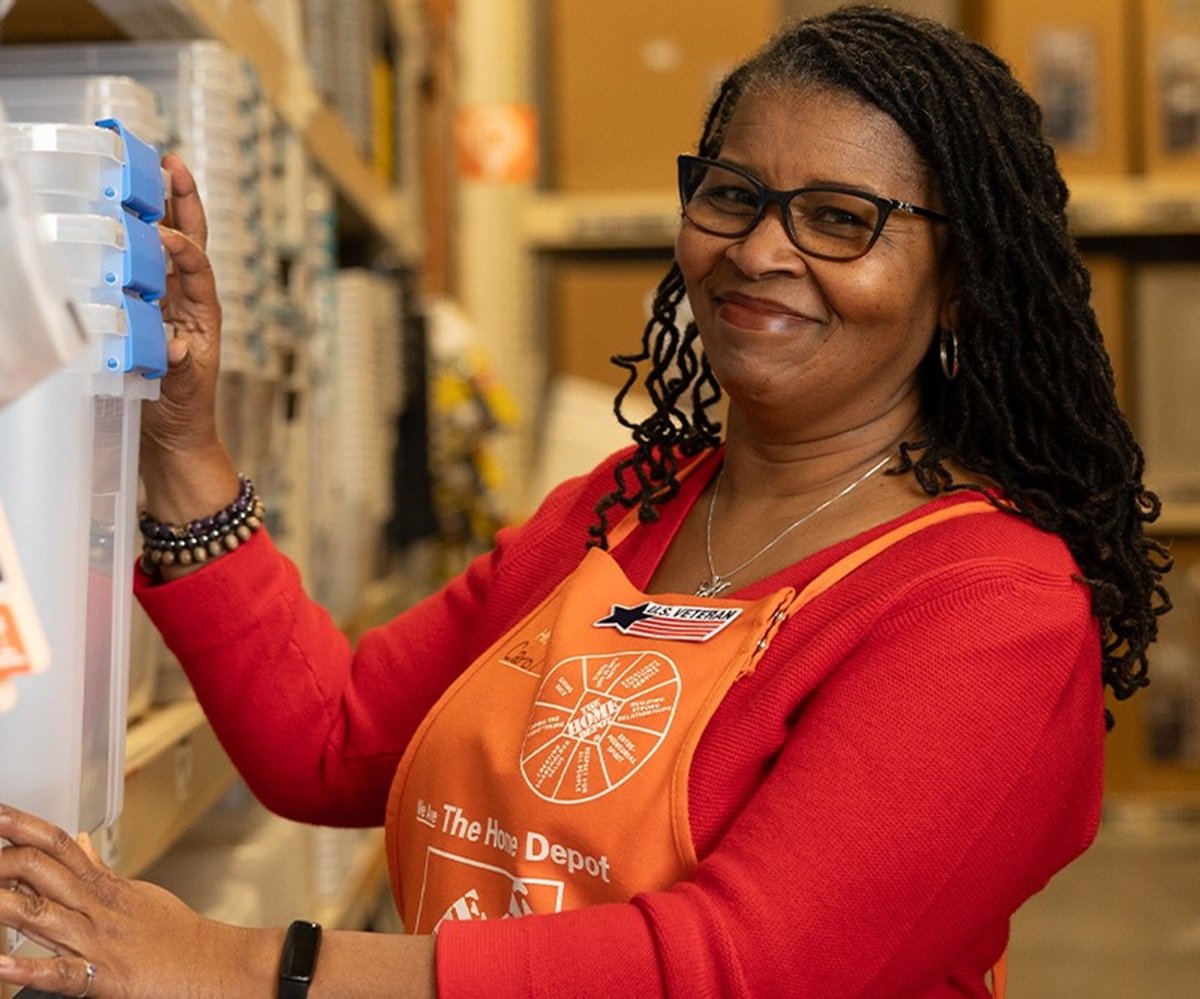Coke vs. Pepsi, Yankees vs. Red Sox, or Justin Bieber vs. good taste -- rivalries and competition are an essential part of business and life. Now that both Lowe's (LOW +0.93%) and Home Depot (HD +0.98%) have reported earnings for the last quarter, let's take a look at these two major home-improvement retailers, and try to find out which one is the better choice for your portfolio.
Home Depot
Home Depot reported a sales increase of 2.9% during the quarter ended on May 4, with total revenues reaching $19.7 billion in the period. Total comparable-store sales increased 2.6% during the quarter, while comparable-store sales in the U.S. performed better, with an increase of 3.3% versus the same quarter in the prior year.
Like many other retailers, Home Depot said that the unusually cold weather had a negative impact on sales during the quarter, and management is expecting a considerable acceleration in growth during the coming months. It's always hard to tell if external factors such as the weather are a real headwind or a simple excuse for poor performance; however, climate conditions seem to have been a real issue for Home Depot during the last quarter when judging by monthly sales figures.
Comparable-store sales in the U.S. grew 2.8% in February, 4.6% in March, and 2.8% in April. Adjusting for the different timing of Easter in 2014 versus 2013, same-store sales in the U.S. would have been 2% higher in April, so performance has been definitively improving with friendlier weather.
Management is doing a solid job on the profitability front: Gross margin improved by 10 basis points to 35% of revenues, while operating margin expanded 70 basis points to 11.6% of sales. Home Depot has an active share-buyback program, and the company reduced its share count by 6.9% versus the same quarter in the previous year. Adjusted earnings per share came in at $0.96, a 15.7% increase versus $0.83 per share in the same quarter during 2013.
Management reaffirmed its outlook for a 4.8% increase in sales during the current fiscal year on the back of a forecast jump of 4.6% in comparable-store sales. Earnings per share are expected to increase by 17.6%, to $4.42; this includes a gain of $0.04 per share related to the sale of Home Depot's holdings in HD Supply.
Lowe's
Lowe's reported $13.4 billion in sales during the quarter ended on May 2, a 2.4% increase versus the same period in the prior year, while comparable-store sales increased by 0.9% during the quarter. Both on a total sales and comparable-store sales basis, Lowe's is underperforming Home Depot.
Like Home Depot, Lowe's was hurt by challenging weather during the last quarter, and management is also optimistic regarding the prospects for an acceleration in growth during the rest of the year: "Performance has improved in May, which, together with our strengthening execution, gives us the confidence to reaffirm our sales and operating profit outlook for the year."
The company is also generating solid profitability in spite of the harsh environment affecting sales during the quarter: Gross profit margin came in at 35.5%, a 70-basis-point increase versus the same quarter in the prior year, while operating margin increased to 8% of revenues versus 7.5% in the year-ago period. Lowe's reduced its share count by 6.7% during the quarter.
Net income increased 15.6%, to $624 million, and adjusted earnings per share excluding extraordinary items came in at $0.58, an 18.3% increase versus $0.49 per share in the same quarter last year.
Lowe's reaffirmed guidance for a sales increase of 5% during fiscal 2014, and the company expects comparable-store sales to grow by 4% during the year. Diluted earnings per share are forecast to be $2.63, marginally better than the $2.62 per share forecast on average by Wall Street analysts.
Foolish takeaway
Both Home Depot and Lowe's were transitorily affected by the unusually cold winter during the last quarter, but the two companies are expecting accelerating growth during the rest of the year. Still, Home Depot did considerably better than Lowe's in terms of sales, especially when it comes to comparable-store sales during the quarter. This may be because Home Depot has a stronger relationship with contractors, which provides stability through challenging times.

Data source: SEC filings.
Sales performance is a crucial factor to consider when making investment decisions in such a competitive industry as retail, in which gaining market share versus the competition can make a lot of difference in financial performance over time. It looks like Home Depot is built on firmer ground than Lowe's.







